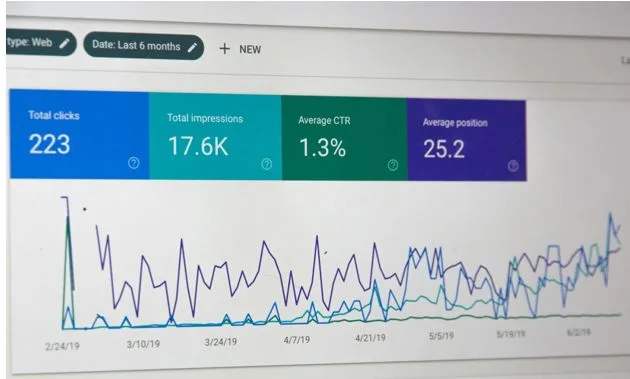What Car Accident Lawyers Look for in Medical Records
Car accidents can leave people dealing with physical pain, emotional stress, and uncertainty about what comes next. Medical treatment becomes a priority, but those same medical records also play a major role in any injury claim that follows. In a city like Las Vegas, where busy roads and heavy traffic increase the likelihood of collisions, documentation becomes even more important.
A Las Vegas car accident lawyer will often turn to these records to understand not only the extent of the injury but also how it is directly connected to the crash. Medical records help clarify when injuries began, how they have progressed, and the impact they have on daily life. Understanding what lawyers look for can help individuals better prepare their claims and protect their right to fair compensation.
Timeline of Injuries
The timing of injuries is one of the most important factors that attorneys consider. Medical records specify the exact dates of onset of symptoms or of initiation of treatment. It also helps to verify if the injuries actually resulted from the collision or were caused by pre-existing conditions. Accurate timelines also eliminate ambiguity about the source of each complaint, which further reinforces the claim for compensation.
Consistency Between Medical Records and Accident Reports
This is important because lawyers need to ensure that the accident report aligns with the medical records. If the patient’s complaints corroborate what was communicated to the polce or the medic, the case looks legitimate. Any inconsistencies may cast doubt on whether the injuries were actually incurred. When the information remains the same, then the insurance companies and the court may not doubt that the harm was done as exactly stated.
Detailed Descriptions of Symptoms and Diagnoses
Evidence in your medical records should include clear descriptions of your symptoms, such as levels of pain or immobility, and emotional suffering. Diagnostic statements must be specific and based on clinical data. Vague language or sparse note-taking can lead to a weak case. Lawyers require a thorough examination because it makes it easier to prove damages.
Treatment Plans and Follow-Up Care
Another area of focus is the treatment plan outlined by healthcare providers. Records that show recommended therapies, medications, and follow-up appointments indicate the seriousness of the injury. Adherence to prescribed care is equally important. If a patient follows medical advice, it suggests the injuries are legitimate and recovery requires significant effort.
Pre-Existing Conditions and Their Relevance
Attorneys examine whether the patient had similar infirmities or conditions prior to the accident. The patient’s medical history will help determine if the crash was a trigger that exacerbated a prior condition or if it was a new injury altogether. Attorneys need to separate what is an old condition from what is a new harm. This difference is important when it comes to paying out claims, because insurance companies can challenge any claims made regarding previous health issues.
Objective Test Results and Imaging
Measurable data, such as X-rays, magnetic resonance images, and lab tests , carry significant weight in court. These results provide evidence that is far less subjective than complaints. Lawyers often emphasize these findings to bolster their clients’ allegations. Evidence of injury cannot be erased from the data; this can sway insurance adjusters and juries alike.
Statements From Treating Physicians
The views and comments from treating physicians are given significant weight. By documenting the injuries, medical professionals can also directly link them to the accident. Narrative assessments by physicians, particularly those with experience in treating trauma, bolster that allegation. In many personal injury cases, legal teams will request letters or summaries to clarify the cause of the injuries, specifically stating that the injuries were caused by the accident.
Documentation of Pain and Suffering
There are references to emotional distress or chronic pain in some medical records. This information can lend a tangible value to non-economic damage claims involving pain or emotional stress. And lawyers seek consistent documentation of these problems across multiple visits. Repeated references to suffering support the argument for higher damages.
Impact on Daily Life and Function
Documenting information on how injuries affect daily activities is critical. They may find records that talk about problems with home management, job, or social difficulties. Lawyers use these references to demonstrate how an accident has broader implications. Documentation that demonstrates a reduced ability to function in daily life can add value to the claim.
Treatment Adherence and Missed Appointments
If a patient sees a doctor and fails to follow up, the lawyer looks for evidence that the patient followed medical advice and attended follow-up appointments. A case can be watered down if visits were missed or recommendations were ignored. If the claimant is always in compliance, it shows that they are seriously working on recovering from the injury. The insurance companies and juries tend to look for care compliance as proof of actual harm.
Conclusion
Medical records are critical to car accident injury claims. Legal professionals review these documents for targeted, consistently accurate, and comprehensive information. The more precise dates, unequivocal diagnosis, paper trail of adherence, and clear test results, all put together, make for a more solid case. Knowing what attorneys look for in these documents teaches claimants how to document their injuries effectively, increasing the likelihood of a fair settlement.





